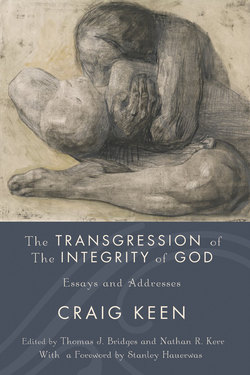Описание книги
"In this dark, when we all talk at once, some of us must learn to whistle."
In this comprehensive collection of his work, Craig Keen's voice emerges as that of a theologian who has indeed learned to whistle. In a day when much of what passes for academic «theology» is careful to maintain a safe distance from any determinate act of faith or work of praise, Keen evinces a single-minded determination to think and to speak, to write and to live doxologically. And whether writing or lecturing, teaching or conversing, Keen understands theology to be nothing less than an invitation to work out one's faith with fear and trembling.
Throughout this volume Keen argues that the life, death, and resurrection of Jesus disrupt all metaphysical attempts to determine the reality of «God,» and suggests instead that theology is to be done liturgically and eucharistically–as the work of a people whose labor is carried out with open hands, free from all attempts to grasp and control. Keen discusses doctrinal issues–the Trinity, incarnation, creation–as well as a number of critical theological concerns–church and culture, justice, holiness, Christian education–in this light. The result is a profound set of reflections on the ways in which the word of the cross simultaneously transgresses our constructions of «God» and gives us to live transgressively in love.
In this comprehensive collection of his work, Craig Keen's voice emerges as that of a theologian who has indeed learned to whistle. In a day when much of what passes for academic «theology» is careful to maintain a safe distance from any determinate act of faith or work of praise, Keen evinces a single-minded determination to think and to speak, to write and to live doxologically. And whether writing or lecturing, teaching or conversing, Keen understands theology to be nothing less than an invitation to work out one's faith with fear and trembling.
Throughout this volume Keen argues that the life, death, and resurrection of Jesus disrupt all metaphysical attempts to determine the reality of «God,» and suggests instead that theology is to be done liturgically and eucharistically–as the work of a people whose labor is carried out with open hands, free from all attempts to grasp and control. Keen discusses doctrinal issues–the Trinity, incarnation, creation–as well as a number of critical theological concerns–church and culture, justice, holiness, Christian education–in this light. The result is a profound set of reflections on the ways in which the word of the cross simultaneously transgresses our constructions of «God» and gives us to live transgressively in love.
